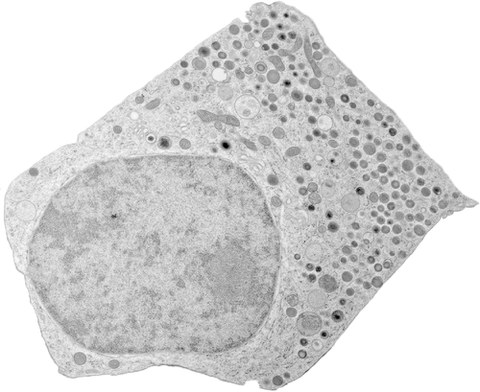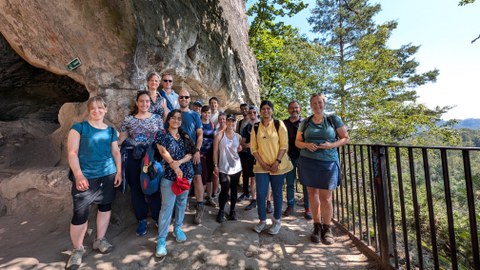Research Focus
Our laboratory is interested in the cell biology of β-cells of the endocrine pancreas. Pancreatic β-cells play a key role in glucose homeostasis by releasing the glucose-lowering hormone insulin. Autoimmune destruction of β-cells leads to the development of type I diabetes mellitus, whereas an impairment of insulin secretion is implicated in the pathogenesis of type II diabetes mellitus. Our research is focused on the insulin secretory granules, i.e. the organelles devoted to the storage and regulated release of insulin in response to glucose and other stimuli.

P. Verkade, J. Ouwendijk, M. Solimena
A first topic of interest is understanding how glucose stimulation, which depletes β-cells of secretory granules, quickly promotes the biogenesis of new secretory granules by up-regulating the production of insulin and other secretory granule proteins. A second major topic of our research is the identification of protein complexes that mediate the interaction of secretory granules with the cortical actin cytoskeleton. The dynamic assembly and disassembly of these complexes may regulate the fusion of secretory granules with the plasma membrane and the recycling of their membranes following exocytosis. A third topic of interest is to understand how the exocytosis of insulin secretory granules may affect cell adhesion and give origin to feedback signals that modulate the activity of β-cells. To pursue these studies we apply a large variety of molecular, biochemical and imaging techniques both in-vitro (in insulinoma cells and purified pancreatic islets) and in-vivo (in transgenic and knock-out mice).
Our ultimate goal is to apply the information obtained through these studies toward the development of novel approaches for the treatment of type I and type II diabetes.

